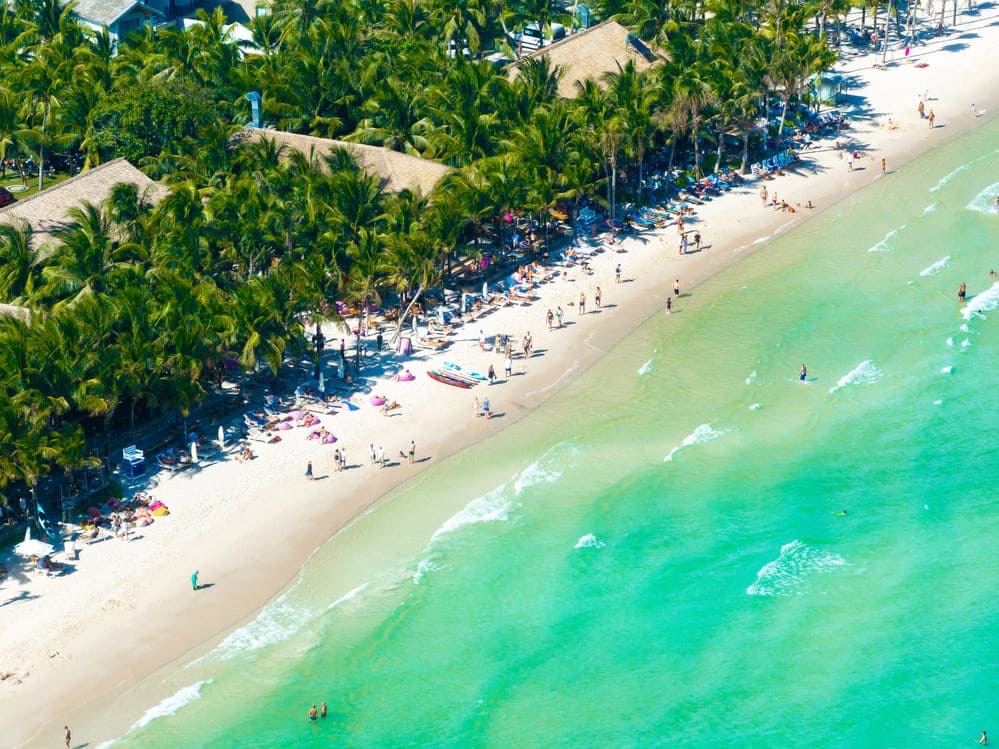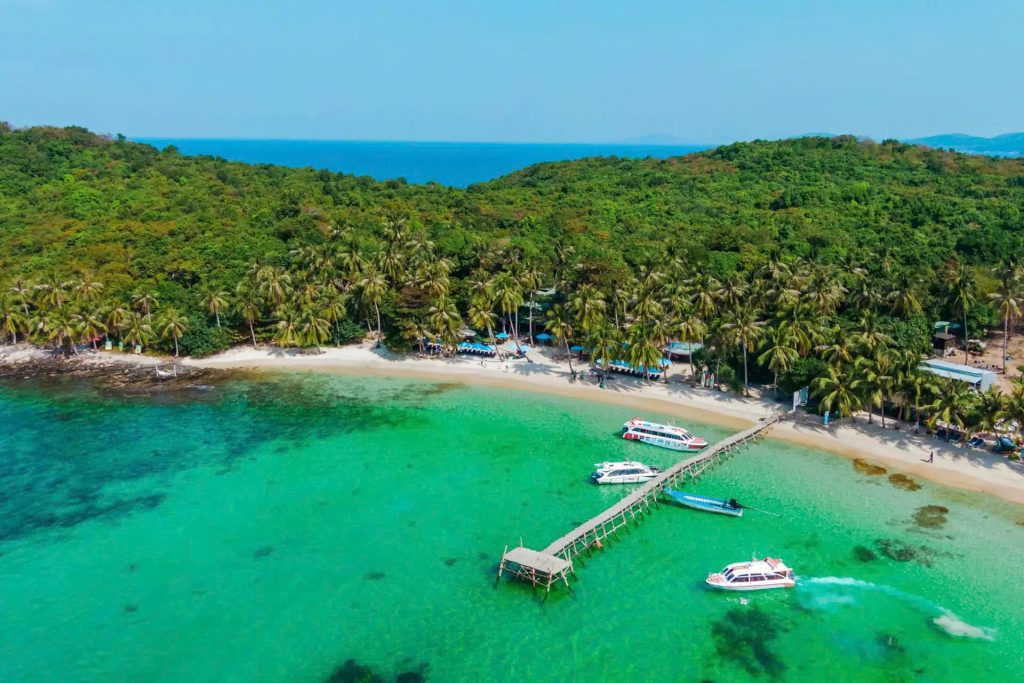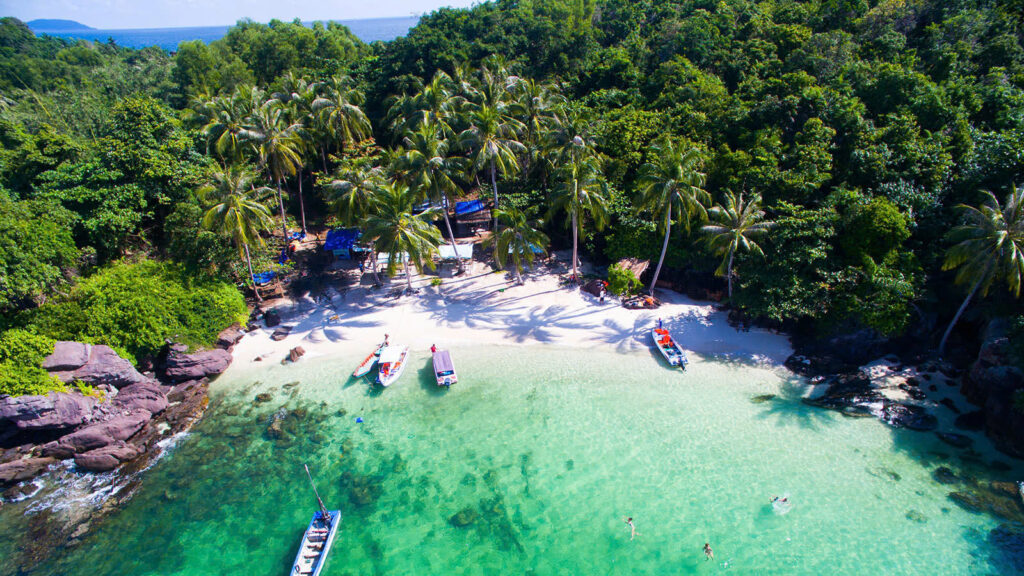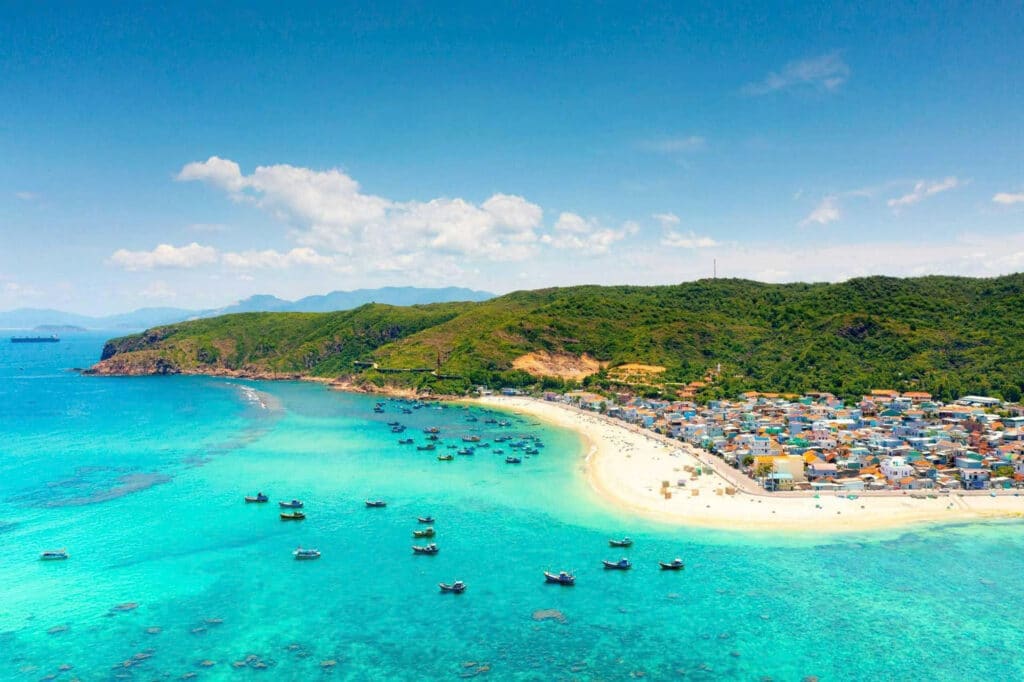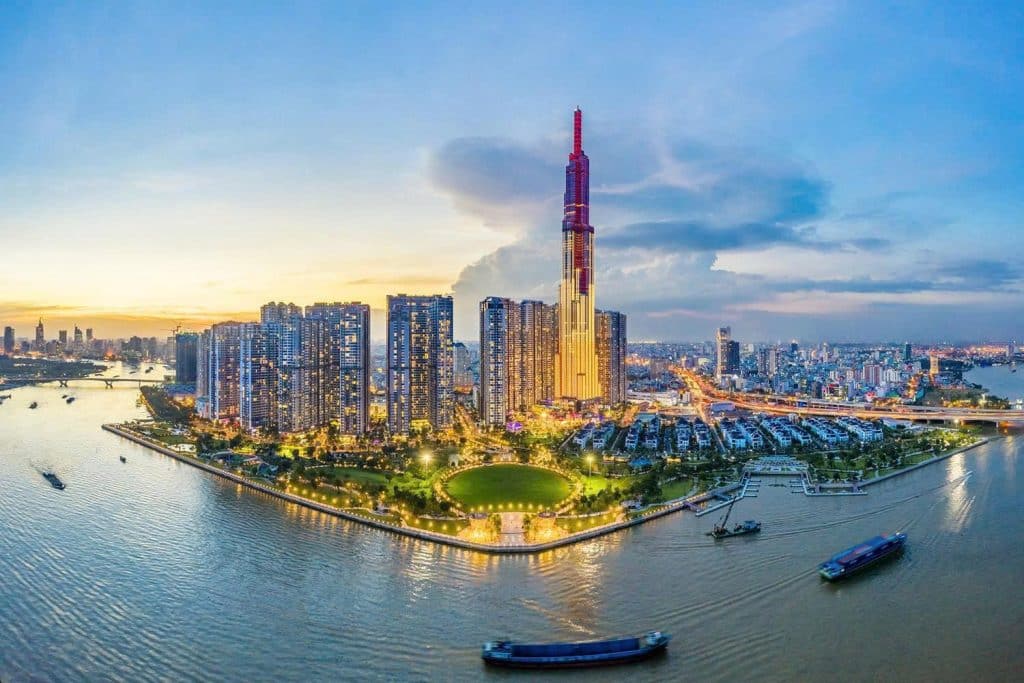Vietnam has captivated the hearts of digital nomads worldwide with its vibrant culture, stunning landscapes, and affordable cost of living. While the dream of working remotely from a beach in Da Nang or a bustling café in Hanoi is appealing, securing a long-term visa for digital nomads in Vietnam can be complex. Unlike some other Southeast Asian nations, Vietnam has yet to officially roll out a dedicated Digital Nomad Visa. However, there are established pathways for remote workers seeking an extended stay.
Understanding Vietnam’s Current Visa Landscape for Remote Workers
Many aspiring digital nomads in Vietnam are surprised to learn that there isn’t a “Digital Nomad Visa” explicitly for them. This means you can’t simply apply for a visa that labels you as a “digital nomad.” Instead, you’ll need to navigate the existing visa categories designed for other purposes, such as business, investment, or even extended tourism.
“Long-term” in the Vietnamese context for foreigners typically implies stays beyond the standard 30 or 90 days offered by tourist visas. For digital nomads, this often involves strategic use of business visas, or in some cases, investor visas.
Existing Visa Options for Extended Stays in Vietnam
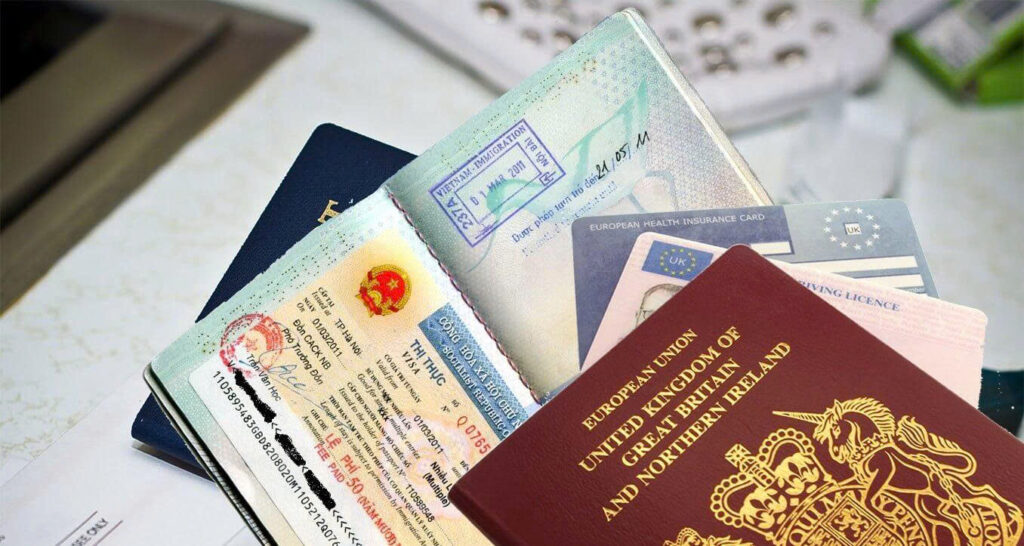
Since there’s no specific digital nomad visa, here are the primary avenues remote workers currently use for longer stays:
Business Visa (DN1/DN2): The Most Common “Long-Term” Alternative
The Business Visa, typically categorized as DN1 or DN2, is a popular choice for remote workers aiming for an extended stay. This visa requires an official invitation letter (sponsorship) from a Vietnamese entity (a company or organization).
- Who is it For? This visa is suitable if you have a legitimate connection with a Vietnamese company, even if your remote work isn’t directly for them. Some digital nomads find local companies willing to provide sponsorship for a fee, though this should be approached with caution and legal advice.
- Application Requirements: You’ll generally need:
- You’ll need a passport that remains valid for at least six months after your intended period of stay.
- Visa application forms.
- Passport-sized photos.
- The crucial invitation letter from your Vietnamese sponsor. This letter outlines the purpose and duration of your stay. The sponsoring company must provide its legal documents (e.g., business license, seal registration).
- Typical Duration and Renewal: Business visas can be issued for 3 months, 6 months, or even up to 1 year, often with multiple entry options. They can sometimes be extended or renewed from within Vietnam, though this process can vary and might require additional paperwork and fees, including a temporary residence confirmation from local police.
- Pros and Cons for Digital Nomads:
- Pros: Allows for longer continuous stays than tourist visas, often with multiple entries.
- Cons: Requires a sponsor, which can be a hurdle. The cost can be higher due to sponsorship fees. While common for remote workers, technically, it’s intended for business activities within Vietnam, so always ensure your activities align with Vietnamese law.
Investor Visa (DT Visas): For Significant Commitments
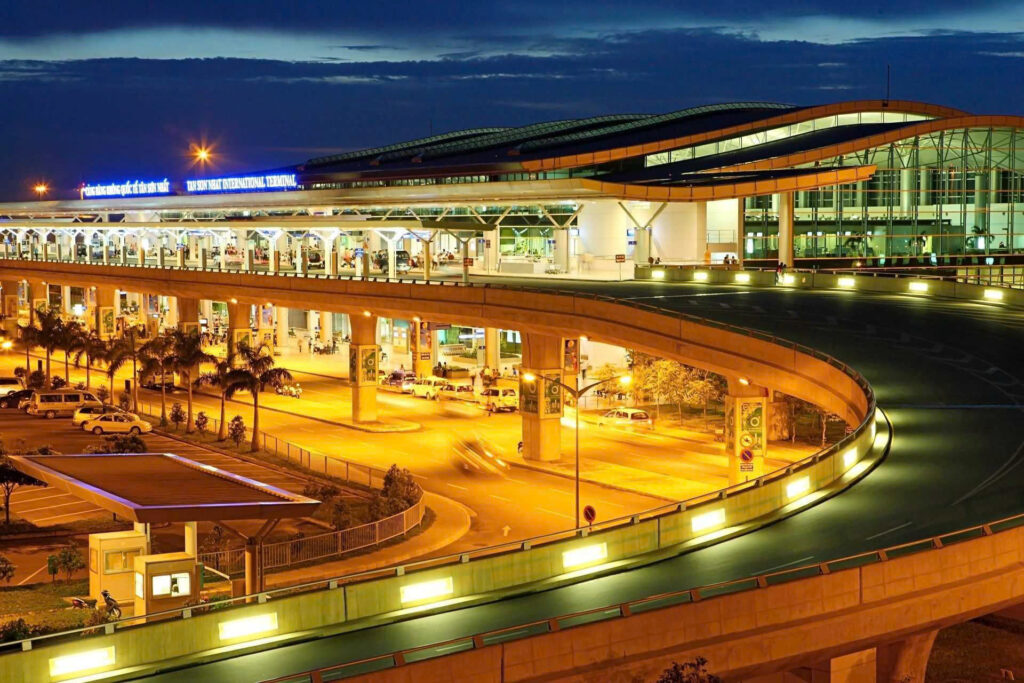
The Investor Visa, designated by codes DT1 to DT4, is for individuals who make substantial investments in Vietnam. While it offers the longest potential stay, it comes with significant financial requirements.
- Different Tiers and Investment Levels:
- DT1: For investments over VND 100 billion (approx. USD 4 million) or in specially incentivized sectors/regions. Validity up to 5 years (and up to 10 years for a Temporary Residence Card – TRC).
- DT2: For investments between VND 50 billion and under VND 100 billion (approx. USD 2-4 million) or in encouraged sectors. Validity up to 5 years (TRC up to 5 years).
- DT3: For investments between VND 3 billion and under VND 50 billion (approx. USD 120,000 – 2 million). Validity up to 3 years (TRC up to 3 years).
- DT4: For investments under VND 3 billion (approx. USD 120,000). Validity up to 1 year (not eligible for TRC).
- Eligibility and Process: You’ll need to establish a legal business entity in Vietnam and obtain an Investment Registration Certificate (IRC). Documents include proof of capital contribution, a valid passport, and visa application forms.
- Benefits vs. Barrier to Entry: Investor visas offer very long-term stays, potential work permit exemptions, and the ability to sponsor family members. However, the high capital requirement makes this a viable option only for a small segment of digital nomads.
Tourist E-Visa (Current Status & Limitations)
Since August 2023 and updated in 2025, Vietnam’s E-visa allows citizens from all countries to apply online.

- Overview: The E-visa now offers up to 90 days with multiple entries.
- Is it Truly “Long-Term”? For many digital nomads, 90 days isn’t considered “long-term” for continuous stay. While the multiple-entry option allows you to leave and re-enter, effectively “resetting” your 90 days, this isn’t a sustainable or legally guaranteed long-term solution.
- Understanding the “Visa Run” Strategy: Many digital nomads historically performed “visa runs” by exiting Vietnam (e.g., to Cambodia or Laos) and immediately re-entering on a new visa. While the multiple-entry E-visa simplifies this, relying solely on constant border runs can be tiresome and is subject to potential scrutiny or changes in immigration policy. There is now no mandated gap between visa-exempt entries.
The Application Process: Step-by-Step Guide
Regardless of the visa type, the general process for applying to stay in Vietnam involves several key steps:
General Requirements for All Visa Types
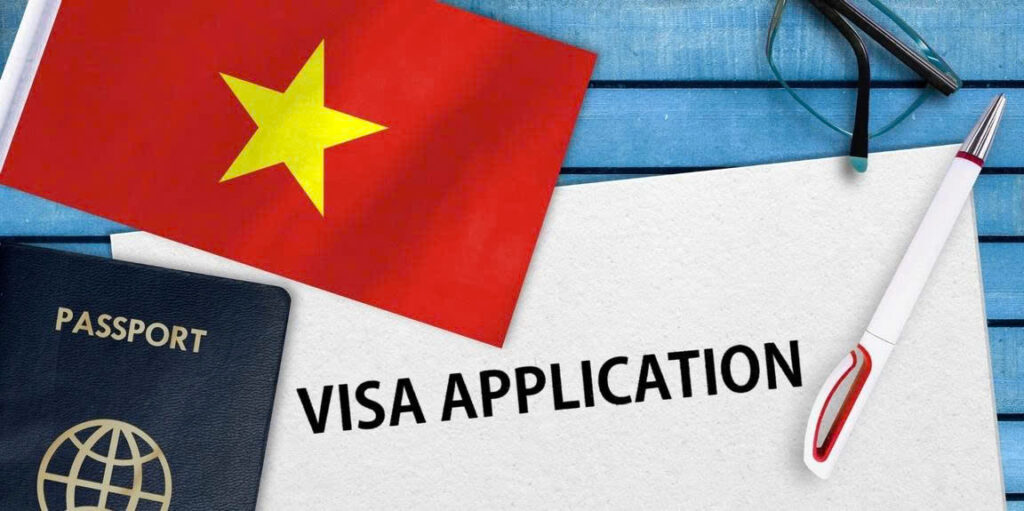
- Valid Passport: Must be valid for at least 6 months beyond your intended stay.
- Application Forms: Fill out the relevant visa application form (e.g., NA2 for outside Vietnam, NA5 for in-country changes/extensions).
- Photos: Recent passport-sized photos with a white background.
- Temporary Residence Confirmation: For in-country applications, proof of your temporary residence (e.g., from local police registration) is often required.
Applying from Outside Vietnam
- Obtain an Approval Letter (if required): For Business or Investor Visas, your Vietnamese sponsor will need to secure an approval letter from the Vietnam Immigration Department. This is then sent to you.
- Submit Application:
- Embassy/Consulate: For business visas or other specific types, you may need to submit your application and approval letter in person or by mail to a Vietnamese Embassy or Consulate in your home country or country of residence.
- Online E-Visa Portal: For the 90-day E-visa, apply directly through the official Vietnam Immigration Department E-visa website.
Visa Extensions and Changes of Status

- In-country Extension/Conversion: For certain visa types (e.g., Business Visas), it may be possible to extend your stay or convert your visa type from within Vietnam. This involves submitting documents to the local Immigration Office (e.g., in Hanoi, Da Nang, or Ho Chi Minh City).
- Leaving Vietnam to Reapply: If an extension isn’t possible or a different visa type is needed, you might have to leave Vietnam and reapply for a new visa from abroad.
Navigating Life as a Digital Nomad in Vietnam
Securing your visa is just the first step. To thrive as a digital nomad in Vietnam, consider these practical aspects:
Understanding Tax Obligations for Remote Workers
If you stay in Vietnam for 183 days or more within a calendar year or 12-month period (starting from your first arrival date), you are generally considered a tax resident and subject to Vietnamese Personal Income Tax (PIT) on your worldwide income. However, for income earned outside of Vietnam (e.g., from foreign clients/employers), you are generally taxed only on income sourced from Vietnam. This is a critical point for many digital nomads. Tax rates are progressive, ranging from 5% to 35%. Always seek advice from a qualified tax professional specializing in international taxation for personalized guidance.
Banking and Finance for Foreigners

Opening a local Vietnamese bank account can be challenging without a long-term visa or work permit. Many digital nomads rely on international debit/credit cards or online banking solutions.
RELATED: Top Digital Nomad Tips for Living in Vietnam Smoothly
Healthcare and Insurance
Access to quality healthcare is crucial. It’s highly recommended to have comprehensive international travel insurance or expat health insurance that covers medical emergencies, evacuations, and routine care while in Vietnam. Local public healthcare is available, but private clinics often offer higher standards for foreigners.
Cost of Living and Popular Digital Nomad Hubs
Vietnam remains a highly affordable destination. Popular hubs like Ho Chi Minh City, Hanoi, and Da Nang offer a vibrant digital nomad scene with coworking spaces, cafes, and diverse communities. Monthly expenses can range from $500 – $1,500 USD depending on your lifestyle.
The Future of Digital Nomad Visas in Vietnam
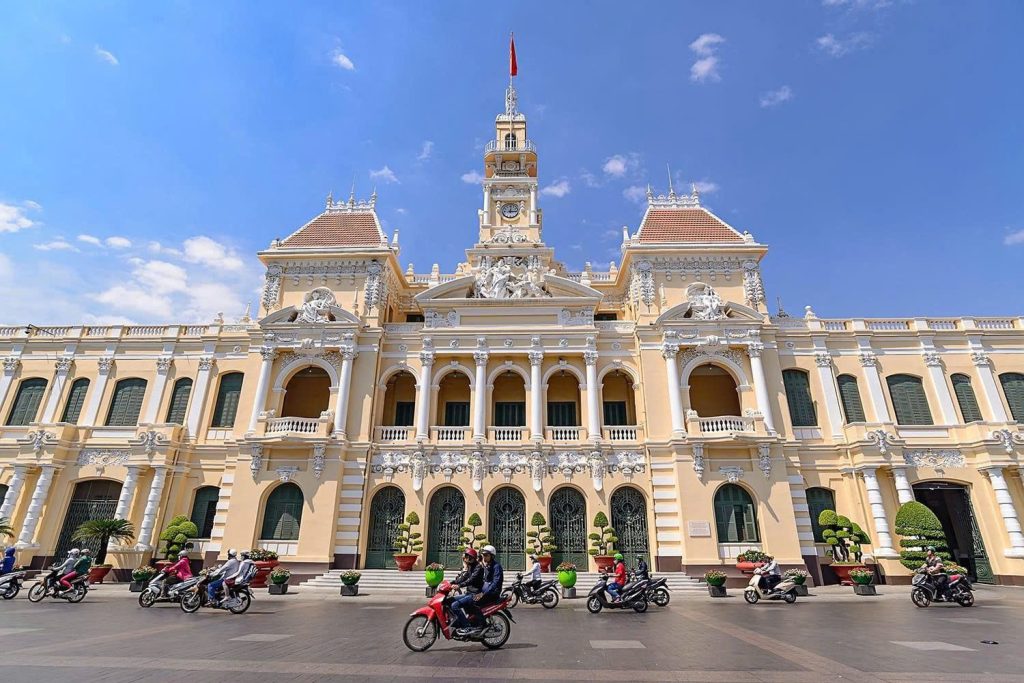
While a dedicated visa isn’t here yet, discussions and proposals are ongoing within the Vietnamese government. There’s a clear recognition of the economic benefits that digital nomads bring.
- Current Discussions: There have been proposals for a “Golden Visa” program (often linked to investment or talent) valid for 5-10 years, which could potentially benefit a broader range of long-term visitors, including high-net-worth digital nomads or skilled professionals.
- Where to Find Official Updates: Stay vigilant! The most reliable sources for updates are the official website of the Vietnam Immigration Department, Vietnamese Embassies and Consulates, and reputable legal/immigration firms operating in Vietnam. Avoid unofficial sources that claim to offer a “digital nomad visa” until it’s officially announced by the Vietnamese government.
Important Considerations and Expert Tips
- The Importance of Legal Compliance: Always prioritize adhering to Vietnamese immigration laws. Overstaying your visa or working illegally can lead to fines, deportation, and future entry bans.
- Seeking Professional Advice: For complex visa situations, especially business or investor visas, consider consulting a Vietnamese immigration lawyer or a reputable visa agency. They can provide up-to-date information and guide you through the intricacies of the application process.
- Preparing for Visa Policy Changes: Vietnam’s visa policies are dynamic. What’s true today might change tomorrow. Always verify information close to your travel dates.
RELATED: Digital Nomad in Vietnam: Best Cities, Costs & Tips
While Vietnam does not currently offer a dedicated ‘Digital Nomad Visa’ program, long-term stay is achievable through careful planning with the appropriate business or investor visa types. By diligently preparing all required documentation and understanding the local regulations, remote professionals can successfully establish a long-term base here. Vietnam’s low cost of living, vibrant culture, and fast-growing digital infrastructure make it an increasingly attractive and viable long-term home for the modern digital nomad.”







